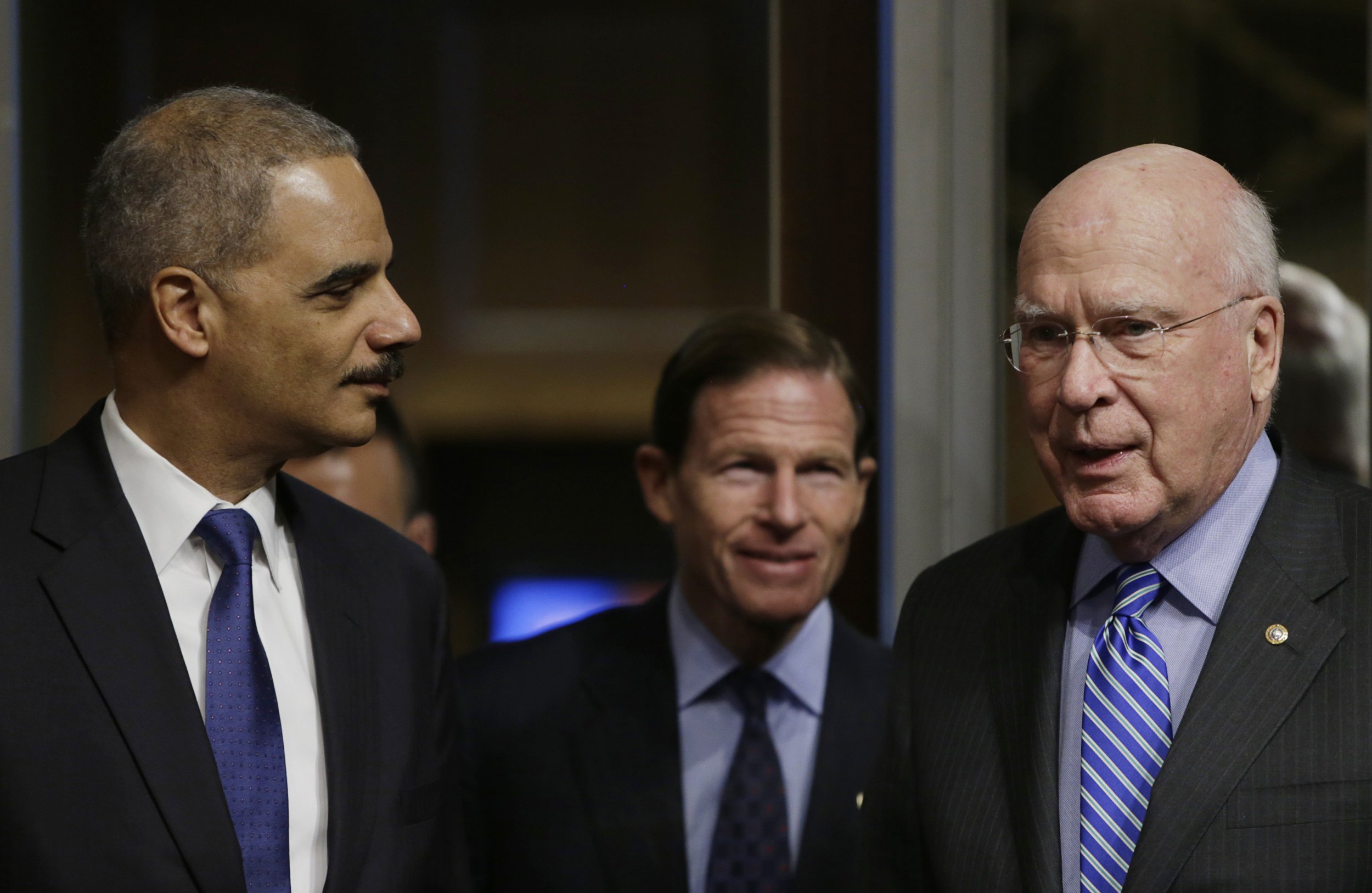
Earlier today, Senator Patrick Leahy (D-Vt.), the Chairman of the Senate Judiciary Committee, introduced a bill aimed at reining in some of the NSA's most controversial digital surveillance practices including the bulk collection of Americans' telephone records.
"First, and most importantly," he said in his introduction of the legislation, "this bill ensures that the ban on bulk collection is effective. It ensures that the government cannot...engage in the indiscriminate collection of Americans' private records."
The USA Freedom Act of 2014 is a revised version of the USA Freedom Act legislation that, back in October, was introduced in the Senate by Leahy and in the House by Representative Jim Sensenbrenner (R-Wis.). A weaker version of the bill ultimately passed in the House back in May. Leahy, meanwhile, has been working with Congress and the White House to develop a stronger version in the Senate. The result has the support of the administration and, according to Leahy's press office, "a wide range of privacy and civil liberties groups."
Leahy's new bill comes just over a year after former U.S. intelligence worker Edward Snowden revealed the massive scope of the NSA's digital spy program. According to secret documents leaked by Snowden, the agency syphons data from submarine internet cables, tracks cellphones, and collects photos, videos, emails, chats and other social media from major Silicon Valley companies.
One of the most controversial aspects of the NSA's surveillance has been the bulk collection of Americans' telephone records—information such as where and when a call was made. The collection of this metadata has been justified by Section 215 of the USA Patriot Act. But in the past year, both the president's Review Group on Intelligence and Communications Technology and the Privacy and Civil Liberties Oversight Board have concluded 215 did not provide adequate justification.
The new bill, Leahy said, proposes to "narrowly limit" the scope of metadata collection by ensuring that intelligence agencies provide a "specific selection term" when seeking authorization under 215. "The bill further specifies that the term cannot be a broad geographic region, such as a city, state, zip code, or area code, nor can it be a service provider," he said. It also calls for the timely destruction of Americans' data when "collection under 215 is likely to be overbroad."
"To replace bulk collection," a summary of the legislation states, "the bill authorizes the use of Section 215 to obtain two hops of 'call detail records' on a daily basis, if the government can demonstrate reasonable, articulable suspicion that its search term is associated with a foreign terrorist organization."
Leahy pointed out that he prefers the original version of the USA Freedom Act, which would have ended bulk metadata collection entirely, but was "concerned that we are running out of time on the legislative calendar." As the New York Times noted, the Senate will leave for recess next week and so it is unlikely the bill will go to a vote before September.
Uncommon Knowledge
Newsweek is committed to challenging conventional wisdom and finding connections in the search for common ground.
Newsweek is committed to challenging conventional wisdom and finding connections in the search for common ground.
About the writer
To read how Newsweek uses AI as a newsroom tool, Click here.






